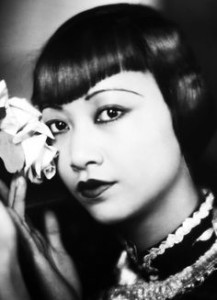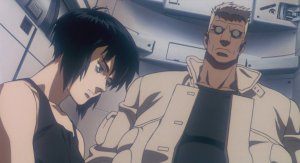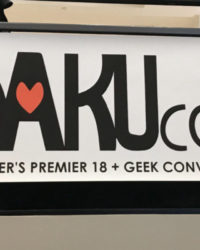(Editor’s Note: This piece originally ran before the release of Ghost In The Shell.)
Scarlett Johansson landed the lead role of cyborg Major Motoko Kusangi or a derivative thereof in Dreamwork’s live action feature adaptation of Masamune Shirow‘s iconic manga Ghost In The Shell. Whether it’s a new adaptation of the source material or based on the 1995 classic cyberpunk anime film written by Kazunori Itō, directed by Mamoru Oshii has yet to be seen. However due to casting, I’m guessing the adaptation is a broad one.
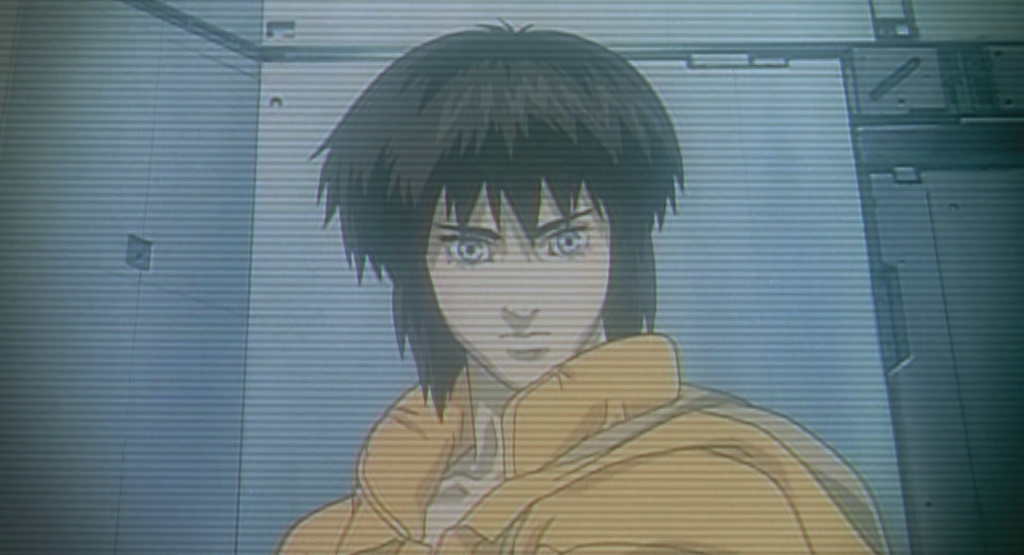
The announcement of Scarlett Johannson’s casting was met with much criticism online amongst fans of the original manga and film, Japanese and Japanese-Americans, film lovers, and sci-fi nerds. Her casting suggests the setting will most likely be changed, or, more likely, the lead’s races will be changed, something that has people rather upset.
Scarlett’s casting (she’s a decent enough of an actress, this is not a slight to her ability) and the root of ire comes at the heels of her starring in the racist film Lucy (whose action scenes were most likely the clincher to offering her the role for this), and points to the repeated trend of Hollywood adapting Japanese source material or properties with Asian casts but never keeping either the cast or locale. The recent Godzilla film is one such remake (of a remake). Disney’s recent Big Hero 6 while a solid, heartfelt film is another example where while the source material is not Japanese, the cast was. For the animated feature however they kept the Japanese aesthetics for their fictional San Frantokyo but racebent the entire Japanese and Ainu cast to only having two half Japanese characters. Last year’s sci-fi romp Edge of Tomorrow is another example of anglicized casting (Tom Cruise, Emily Blunt) despite being based on a light novel and manga series All You Need Is Kill by Hiroshi Sakurazaka. It could have been a great chance for an Asian dual lead film. But we chose not to do that. The laughable Dragonball: Evolution probably takes the crown as the prime example of Hollywood’s poor insight into adapting Japanese source material and should stand as a warning to these attempted remakes. Removal of original Asian characters and replacing them with white characters and actors, is called whitewashing and it’s a problem.
Whitewashing is common in Hollywood. I get it though. Demographics and needing names to sell a picture in the US is pretty standard, you really cant do a mainstream movie without them, but you cant teach people otherwise to be more accepting if you keep it all the same. American films are more global than ever. People in other countries watch our white casted films yet we can’t watch casts with theirs much in the same manner. That’s a problem. China has been making or breaking some of our films from being flops or not, and yet we continue with euro-centric casting.
Historically characters that were or are meant to be Asian are often just made white (2008’s 21) or they (often for comedic effect) are kept Asian but are cast with white actors made up in brown and yellowface. This was really prevalent through most of the 20th century and classic Old Hollywood. Examples include the Charlie Chan series, Katherine Hepburn in Dragon Seed (1944), Jean Simmons in Black Narcissus (1947) and notably the uber racist caricature played by Mickey Rooney in the otherwise much loved Breakfast at Tiffany’s (1961). And that’s just the tip off the iceberg.
It’s been a problem in film history from its inception and as far reaching as films like Broken Blossoms (1919). The most notable case of yellowface and whitewashed casting controversy was most likely Luise Rainer getting cast in the China based drama The Good Earth (1937) as the main lead O-Lan while actual Chinese-American actress Anna May Wong, while suggested for the role, but due to a rule at the time forbidding on screen interracial couples, was ultimately offered the unsympathetic supporting role of the seductress Lotus instead.
It was an offer she was used to as she struggled throughout her career to get non “dragon lady” roles and this more or less was the last straw. It offended her and she refused it with her saying to producers “You’re asking me – with Chinese blood – to do the only unsympathetic role in the picture featuring an all-American cast portraying Chinese characters?!” The snub more or less made her leave Hollywood for a while.
Lotus went on to be played by a white woman in yellowface. Rainer won Best Actress at that
year’s Oscars for her portrayal of O-Lan.
For more modern examples of whitewashing and yellowface look no further than the recent Cloud Atlas and nearly the entire cast of the live action version of Avatar: The Last Airbender. They did it to Khan in the latest Star Trek, and they’re doing with the new forthcoming Freddie Mercury biopic (surprise Freddie Mercury was Indian, not a white British guy!). Asian actors and actresses are routinely sidelined since film became a thing and people are sick and aggravated over it.
While some Asian to American media remakes like The Ring are generally good films in their own right, and yes I personally believe some material from Japan is acceptable to freely remake for American audiences , just as people may adapt an American novel overseas, but Ghost In The Shell is not one of such properties. It’s too intricate. Like Akira it is just too Japanese to take and remove it contextually from Japan. You can’t take Motoko away from being Japanese.
The Major, Motoko Kusanagi is a famous Japanese icon, and while her body chassis is artificial (purple-black hair and all) and could technically look any way she wanted she, the person inside the machine, is Japanese. Her character is Japanese. The way she acts and her approach to things is very Japanese. To change all that, changes the character entirely. Who will she be if she’s white? Major Ruby Monahan? To change Ghost In The Shell to not be Japanese means you remove a lot of what makes it…it. I personally don’t think it can stand well without it. To remove Kusangai makes it not Ghost In The Shell. To keep her Kusanagi by name but present her as white (a white chasis!) would be a spit in the eye to anyone who is of Japanese heritage.
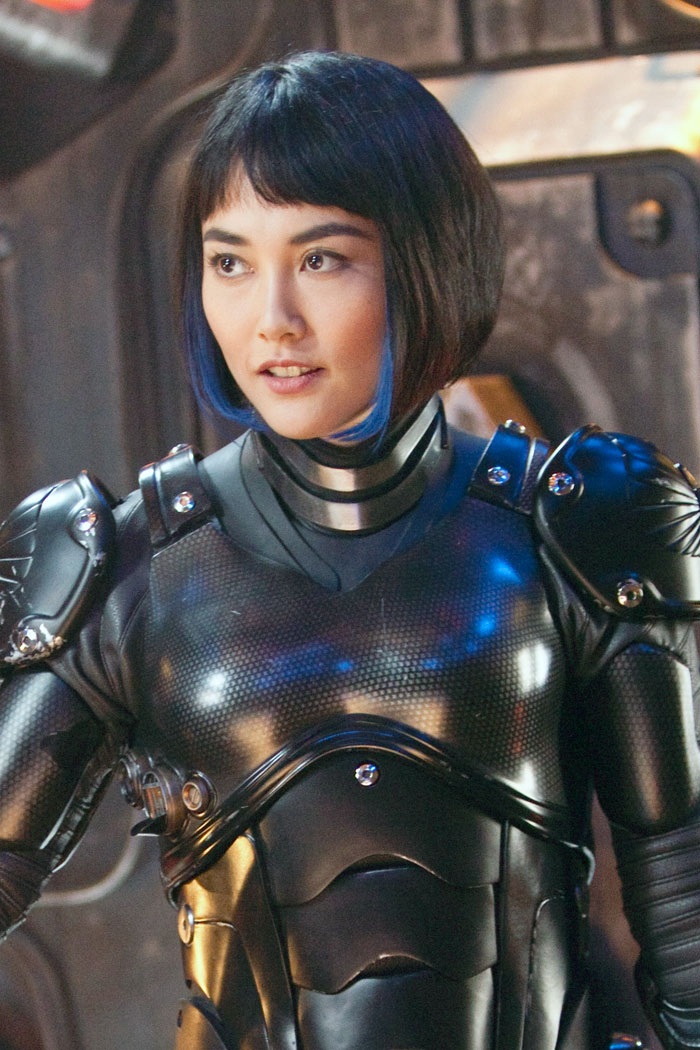 Many have pointed out that Japanese actress Rinko Kikuchi, Oscar nominated, and currently the highest profile Asian actress in Western film due to her nominated role in Babel, her recent role in Pacific Rim and her new film Kumiko the Treasure Hunter, would have been an ideal casting choice (I feel opening it up to other Japanese and Japanese-American actresses, possibly casting an unknown wouldn’t have hurt either). And I agree. She would have been perfect. I think that would have been great and would have solved this issue and ire. Proper representation regardless as to where they set it. Do you know how much that would have meant to people? I would have been on board for this film.
Many have pointed out that Japanese actress Rinko Kikuchi, Oscar nominated, and currently the highest profile Asian actress in Western film due to her nominated role in Babel, her recent role in Pacific Rim and her new film Kumiko the Treasure Hunter, would have been an ideal casting choice (I feel opening it up to other Japanese and Japanese-American actresses, possibly casting an unknown wouldn’t have hurt either). And I agree. She would have been perfect. I think that would have been great and would have solved this issue and ire. Proper representation regardless as to where they set it. Do you know how much that would have meant to people? I would have been on board for this film.
But unfortunately ScarJo’s casting has also in my opinion shown the producers hand and it seems to suggest, just going by her casting they’ll be going the “action film” route for this iteration, and probably would be that way with or without Scarlett, and that is bad.
Why is that bad? Because it’s really not an action film. Not quite as people are used to anyway. While it influenced and birthed many action sci-fi titles and films since its creation, in contrast Ghost in The Shell itself is not entirely easy fare to digest. The original film adaptation is an exercise in restraint and is not a popcorn muncher the way American audiences tend to like them. I am generalizing, of course, but as a rule of thumb the 1995 film is way too slow, way too cerebral and above all way less action oriented than you’d think it would be if looking at the cover or material for it.
There’s a whole lot of Eastern and Western rooted philosophizing around concepts of the self, self consciousness and identity (and the blurring boundaries between man and machine), with a fair bit of action and political intrigue for good measure too. It’s dense material. The AU television series Stand Alone Complex is notably more digestible but is still a rather plodding and lo-fi politically bent procedural for a series otherwise drenched in high-tech gear and robotics. In the end even that series still espouses the original film and manga’s philosophies and explores the same themes many of which depend on Japanese theory and thought. To shoehorn that into a guns blazing action film of general mainstream American taste is sort of misunderstanding the material. 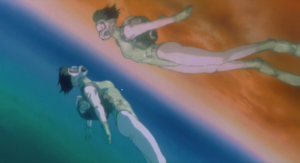 Casting Kusanagi as anything other than Japanese shows that core misunderstanding.
Casting Kusanagi as anything other than Japanese shows that core misunderstanding.
Maybe they will keep it philosophic and audiences will like it. I hope so. I’ll gladly eat my hat. I doubt Sanders can direct a film that delicate judging by his past and only feature length work, Snow White & The Huntsman. While doubtful, I’d like to see him try. I’m always up for seeing someone try considering he’s such a new director. From an audience reception standpoint it is important to note America has taken well to pseudo-cerebral action films as of late, Christopher Nolan‘s Inception (2010) and Darren Aronofsky’s Black Swan (2010) were popular. It should be additionally noted that both of those films were heavily influenced by the sadly now passed director Satoshi Kon and both films featured scenes and themes (how topical) directly ripped from his anime films Paprika and Perfect Blue respectively. Americanized and repackaged Japanese material. But point is…people did like them. So who knows? The concern still stands. The casting for this still offends.
Like the Major herself regarding her humanity I’m really uncertain and very cynical Hollywood can pull this film off due to the insensitivity shown from the starting gate by this casting and what it can imply for the rest of the feature. Hopefully I am proved wrong for the latter. What is clear however is that they’ve removed for this iteration the presence of a great Asian (not to mention bisexual) character and struck down the chance for an Asian actress to be featured at the helm of a blockbuster Western action film and handed it over, yet again, like O-Lan nearly 80 years ago (80 years!), to a white woman. And that’s a really big turn off.


